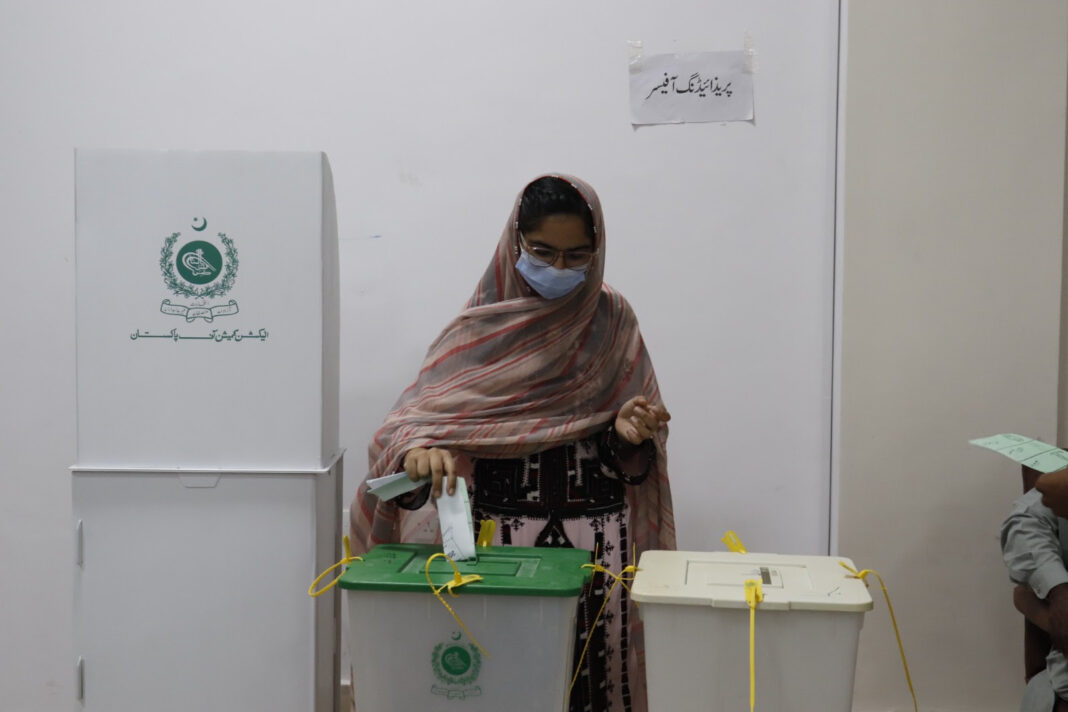By: Faheem Anwar
TURBAT: The University of Turbat organized a consultative session in their Large Lecture Hall, bringing together students, faculty, and distinguished guests to explore the significance of youth involvement in Pakistan’s electoral processes. The event was inaugurated by Dr. Changez Baloch, Chairman of the Political Science Department at the University of Turbat, who underscored the role of active youth engagement in strengthening Pakistan’s democracy.
Representatives from the Election Commission of Pakistan (ECP), including Mr. Sikandar Jamali, Regional Election Commissioner Makran Division, Mr. Muhammad, District Election Commissioner, and Mr. Ghous Baksh, Deputy Director, joined the discussion. Mr. Faheem Ahmed Khan, Senior Projects Manager from PILDAT, introduced the panel members, highlighting the demographic distribution of registered voters in Pakistan, particularly the 18-35 age group.
The panelists delved into the reasons for low youth voter participation, including trust issues in the electoral system and limited knowledge about the voting process. Ms. Naz Gul, Ms. Tanavosh Fazal, and Mr. Akhtar Ali, representing the youth, expressed concerns about inadequate representation of young people in politics, perceived unfair elections, and the lack of meaningful engagement on campuses.
Mr. Muhammad, the District Election Commissioner of Turbat, highlighted ECP’s efforts to raise awareness among youth regarding their role in the electoral process, while Mr. Sikandar Jamali, the Regional Election Commissioner of Makran, emphasized the critical importance of youth participation in elections.
The session attracted 151 students, with nearly an equal gender distribution. Following the panel discussion, students actively participated in a mock polling exercise, expressing eagerness to engage in democratic processes and in-depth discussions on the topics presented.





